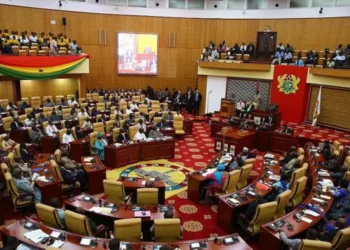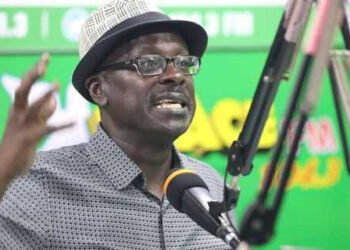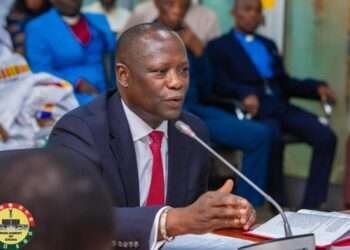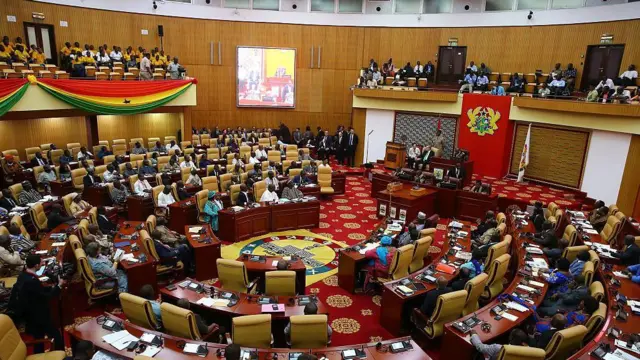In recent years, a wider section of the general public and leading civil society leaders have expressed deep concerns over the inability of successive governments to hold public officials accountable for their actions and inactions.
This pervasive lack of accountability has, according to many, led to the institutionalization of a culture of impunity within the country, with some concerned citizens arguing that this trend undermines democratic governance and economic stability.
Dr. Kojo Pumpuni Asante, Director of Advocacy and Policy Engagement at the Ghana Centre for Democratic Development (CDD-Ghana), in a scathing critique of the alarming trend, attributed the widespread unaccountability among public officers to a deeply flawed accountability structure that allows these officials to evade responsibility.
Dr. Asante contended that the current system offers little to no incentive for public officials to exercise restraint or make responsible decisions, highlighting a systemic failure that requires urgent attention.
“We have created a system where there is really no incentive for accountability. There is no incentive for you to restrain yourself when you have to make decisions that can be reckless and completely impoverish people, like what we have done with Domestic Debt Restructuring and destroyed people’s savings”.
Dr. Kojo Pumpuni Asante, Director of Advocacy and Policy Engagement, CDD-Ghana
His remarks underscore the devastating impact of unaccountable governance on ordinary citizens, particularly in terms of financial security and economic well-being.

Ineffective Oversight of Government Spending
Dr. Asante also criticized the ineffective oversight of government spending by Parliament, particularly through the Ghana Integrated Financial Management Information System (GIFMIS).
He called for attention to the loopholes in the financial oversight mechanisms that enable fiscal mismanagement and corruption.
‘What is the incentive for the Finance Minister to put all transactions through GIFMIS if Parliament only makes Appropriations but does not put a conditionality for all transactions to go through the system?” he questioned.
The need for robust accountability measures within the political system is paramount, according to Dr. Asante, arguing that without the right incentives, addressing the ongoing issues will be an uphill battle.
“People are not angels, so if they fail because the political party is corrupt or has created a corrupt culture, we cannot expect that somehow, they will carry that through the office when appointed and become angels”.
Dr. Kojo Pumpuni Asante, Director of Advocacy and Policy Engagement, CDD-Ghana
For any meaningful reset to occur, Dr Asante, emphasized that the governance structure must include proper incentives to ensure accountability.
Professor Baffour Agyeman-Duah, a former UN Senior Governance Advisor, shared Dr. Asante’s concerns but is more pessimistic about the prospects for change within the current political framework.
Prof. Agyeman-Duah likened the quest for accountability to “looking for a needle in a haystack,” suggesting that significant change seems unattainable within the present context.
“We cannot even change because the constitution has created this system, and we respect that. The people who have been elected to operationalize the constitution claim to be working based on the constitution”.
Professor Baffour Agyeman-Duah, former UN Senior Governance Advisor
Prof. Agyeman-Duah argued that the desired change cannot rely solely on the political elite and called on the masses to actively seek reform.
“I see a real need to reform the constitution in the first place to reform the way we do our politics and the way we govern ourselves. Inherent in the current structures are the challenges that are being discussed”.
Professor Baffour Agyeman-Duah, former UN Senior Governance Advisor
His call for constitutional reform points to the root of the problem, emphasizing that systemic change is necessary to rectify the flaws in Ghana’s governance.

A key aspect of this reform, according to Prof. Agyeman-Duah, is the decentralization of presidential powers. He indicated that the President holds almost unlimited authority, with wide discretionary powers that need to be curtailed to empower local communities and districts.
“We are practicing democracy at the top and neglecting the bottom, which is the true meaning of democracy,” he concluded.
The comments by Dr. Asante and Prof. Agyeman-Duah highlight the critical need for a comprehensive overhaul of Ghana’s accountability mechanisms.
Without meaningful reforms, the culture of impunity will continue to erode the foundations of democratic governance and economic stability in the country.
READ ALSO: Ghana’s Government Borrows GH¢115.77bn in Early 2024 as Interest Rates Plummet





















